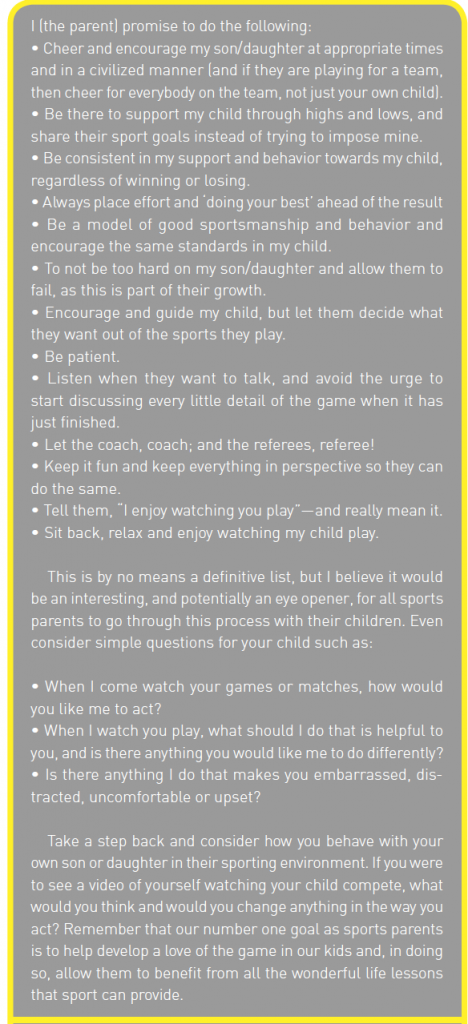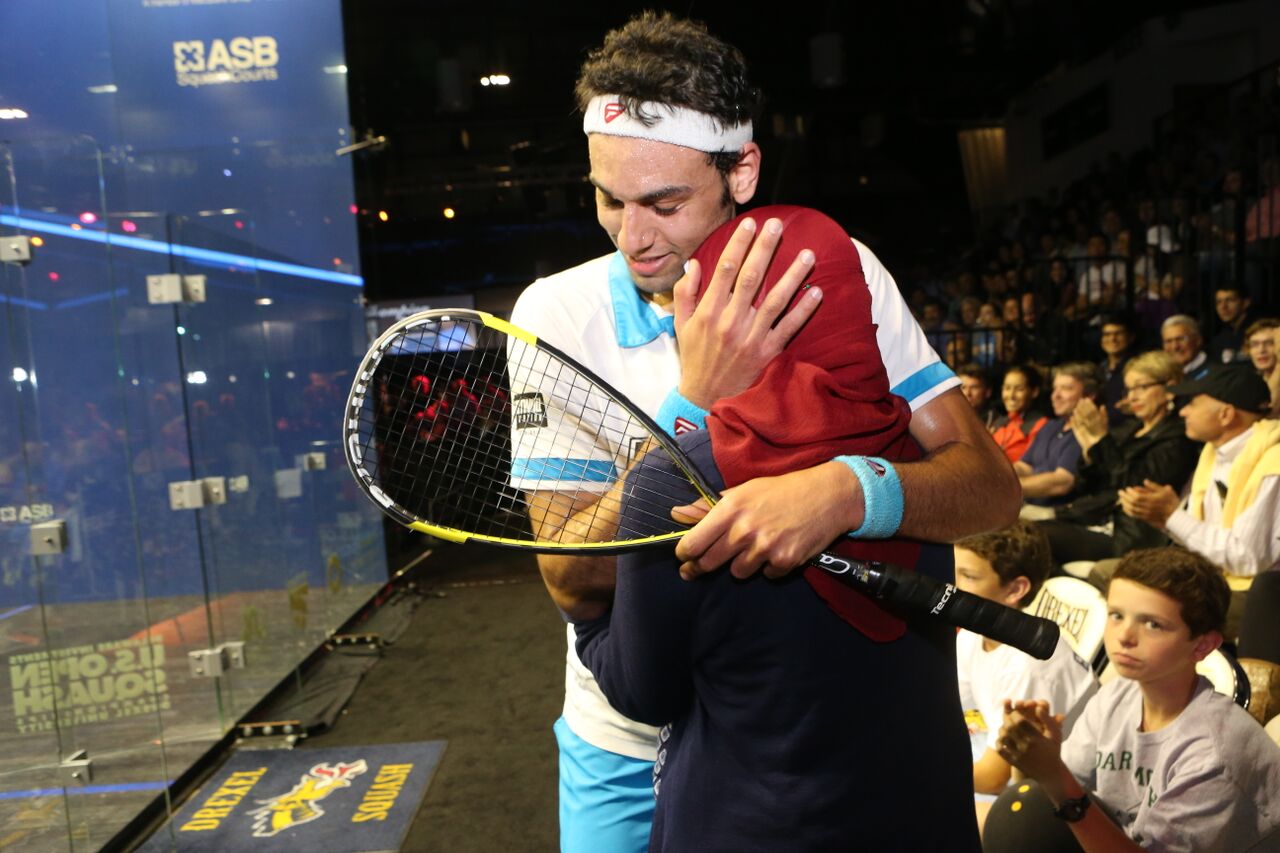By Damon Leedale-Brown, Sports Scientist & Conditioning Specialist

As both a coach and parent, the motivation to write this article came from the observations of sports parents’ behavior (good and bad) at squash events and at other sports that my son participates in.
I am sure we are all too familiar with the ‘nightmare sports parent’—the ones screaming instructions from the sidelines; constantly questioning out loud the decisions made by the referee; demonstrating negative body language to every ‘perceived’ bad play or poor shot choice; and sending out a message that the result is more important than the manner in which it is achieved.
Research in the U.S. suggests that approximately 70% of kids quit organized sports by the ages of 13-14. The number one reason cited is that they are not having fun anymore—often a combination of ‘win at all cost’ coaches and over-pressuring parents has drained all the fun out of their childhood sports.
Bruce Brown and Rob Miller of Proactive Coaching carried out an informal survey over three decades with hundreds of college athletes. When asked to think back to their worst memories of school and youth sports, the No. 1 response was “the ride home from the game with my parents!” Equally, when asked what their parents said that made them feel great after a match or game, it was as simple as, “I love to watch you play.”
As parents and adults we do not always respond well to being told how to behave and how to support our kids by coaches, clubs and sports organizations. John O’Sullivan (author of Changing the Game) suggests that a more effective approach for most sports parents would be to consider the set of standards or Parental Code of Conduct your own son or daughter would come up with if you gave them the opportunity. Maybe it would look something like this:


